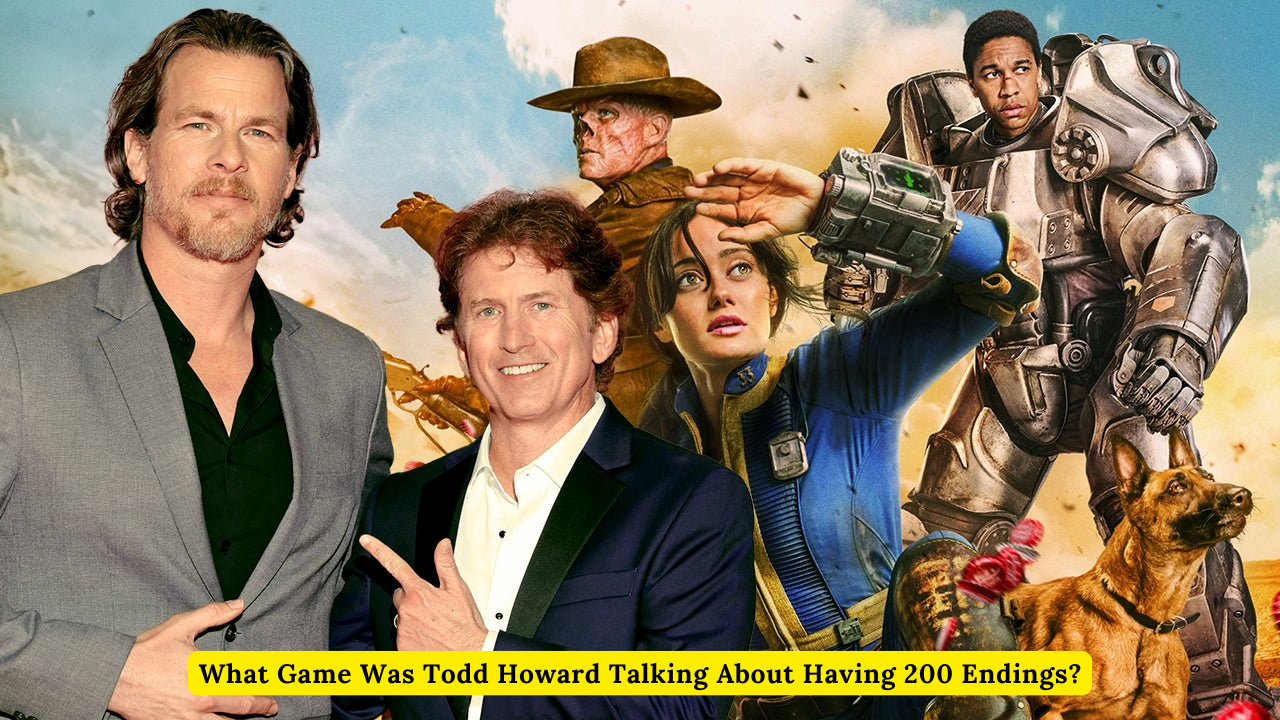When it comes to the world of video game development, few names carry as much weight as Todd Howard. As a key figure at Bethesda Game Studios, Todd Howard has been instrumental in the creation of some of the most iconic and ambitious video games of all time. One of his most famous claims, which has generated a lot of discussions over the years, is about a game that purportedly features 200 different endings. So, what game was Todd Howard talking about, and what does this mean for the player experience? What Game Was Todd Howard Talking About Having 200 Endings?
The Game in Question: Fallout 3
The game that Todd Howard was referring to when he mentioned 200 endings is none other than Fallout 3. Released in 2008, Fallout 3 was a groundbreaking entry in the post-apocalyptic RPG genre, offering players an expansive open-world experience filled with moral choices, branching narratives, and immersive gameplay.
The “200 Endings” Claim
When Todd Howard made the claim that Fallout 3 would have 200 endings, it set the gaming community abuzz with speculation and excitement. However, it’s essential to understand what he meant by “endings.”
Howard wasn’t suggesting that there would be 200 entirely distinct conclusions to the game, but rather that the ending sequences would reflect the many choices players made throughout their journey. These choices could affect various aspects of the ending, such as:
- The fate of major characters you encounter during your travels.
- The condition of the Wasteland and the communities within it.
- Moral decisions made during key quests, such as choosing to blow up Megaton or saving it.
In essence, the “200 endings” refers to the myriad possible variations of the final sequence based on the player’s cumulative decisions. Each player’s experience would culminate in a unique ending sequence, tailored to the specific choices they made throughout the game.
Criticism and Reality
While the claim of 200 endings was an exciting prospect, it did face some criticism after the game’s release. Many players and critics felt that while the game’s endings did reflect different choices, the variations were more subtle and not as distinct as some had hoped. The differences often boiled down to changes in the narration and a few visual elements, rather than entirely different scenarios or outcomes.
However, despite this criticism, Fallout 3 remains a beloved title, with its vast world, deep lore, and moral complexity offering players an experience that feels uniquely theirs.
Fallout 3’s Legacy and Todd Howard’s Vision
Fallout 3’s legacy is undeniable. The game helped redefine the RPG genre, blending open-world exploration with deep storytelling and player choice. Todd Howard’s vision for the game was ambitious, and while the “200 endings” claim may have been more about emphasizing the game’s depth rather than a literal count, it highlighted Bethesda’s commitment to creating a world where players’ choices matter.
Even today, Fallout 3 is fondly remembered by fans, and its influence can be seen in many modern RPGs that prioritize player agency and narrative depth.
Conclusion
The game Todd Howard was referring to when he talked about having 200 endings is Fallout 3. This ambitious claim underscored the game’s emphasis on player choice and the impact of those choices on the narrative. While the reality of these 200 endings may have been more nuanced than some expected, Fallout 3 remains a landmark title in video game history, showcasing Todd Howard and Bethesda’s commitment to creating rich, immersive worlds where every decision counts.
For more detailed discussions and insights on the impact of these endings and how they influenced player experiences, you can visit community forums and discussions like those found on GameFAQs.
